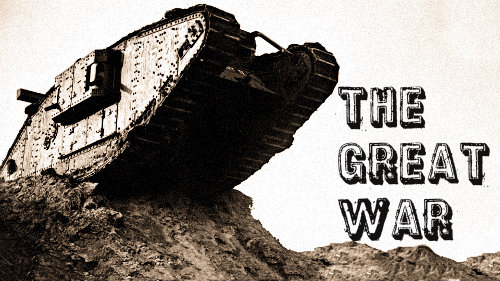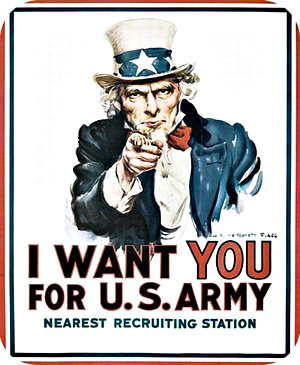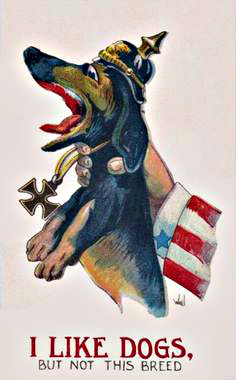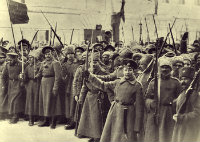In honor of the one-hundred-year-old war, here are ten uncommon WWI facts — some seemingly weird writers did not include them when writing down the schoolbooks.
Uncommon WWI Facts #1: US came in very late in the war…literally.
It was not until the second-half of 1917 that the United States joined the Great War. Moreover, it was rarely involved during the first years of the conflict. The stand came from the efforts of US President Woodrow Wilson to keep the country neutral.
Nevertheless, it was also President Wilson, who uttered the words “the war to end all wars” when he addressed the US Congress. He spoke to persuade the house to declare war against Germany and they did.
Reportedly, the total combat length US spent on the conflict was just about six to eight months.
Uncommon WWI Facts #2: WWI tanks had genders.
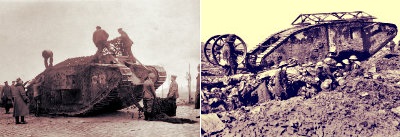
In the first place, when the “tanks” were invented, they were originally called landships. But in an attempt to camouflage them from the enemy, they were dubbed tanks, meaning, containers for water storage.
Comically, tanks during the Great War also had genders. The males were those that carried cannons and the females were equipped with machine guns.
The original tank prototype was named Little Willie. It had the capacity to carry a three-man crew and could as fast as 3 mph.
Uncommon WWI Facts #3: The ‘end’ of everything German.
Suspicions about anything German was so high in the United States during the First World War. Everything with German-associated names were changed. Hamburgers, which were named after the German city, Hamburg, were renamed Salisbury Steak. Frankfurters – after Frankfurt, Germany – were renamed liberty sausages. Dachshunds became liberty dogs. American schools stopped teaching German language and books written in German language were either banned or burned.
Before the war, though, the German language was America’s second most widely used speaking language.
Uncommon WWI Facts #4: The creation of Dr. Dolittle
Yes, the animal-talking doctor later on depicted in a series of movies stemmed and were written from the trenches of the Great War.
Its author, Hugh Lofting, wrote sent illustrated letters to his children from the trenches. Instead of them carrying the grim realities of the conflict, they contained the series of stories about fictitious Dr. John Dolittle and his ability to talk to and understand animals. According to Lofting, better that than the either too dull or horrible news from the war’s front lines.
Uncommon WWI Facts #5: Russia mobilized the biggest army in the conflict.
Russia had a total of 12 million troops during the Great War. But then, when the war ended, only about a fourth of that number remained. The rest were either wounded, killed or went missing in action.
Uncommon WWI Facts #6: Of Shell-Shock and Dogfight
Post Traumatic Stress Disorder (PTSD) was originally termed as shell-shock and was first diagnosed during the Great War. Beforehand, those who showed symptoms of shell-shock were seen as cowards and were simply executed. Though shell-shock is not the term used for the condition anymore, psychologically-wise, it is still used in the ‘everyday language”.
Dogfight is another word that had its roots way back in the Great War. WWI warplanes had to be turned off from time to time, so they wouldn’t stall while the aircraft made quick turns in the air. The term was coined from the sounds the engine emitted when they were turned back on mid-air. They sounded like barking dogs in a fight.
Nowadays, the word is another term for a riot or scuffle.
Uncommon WWI Facts #7: The American Indians and African Americans in war
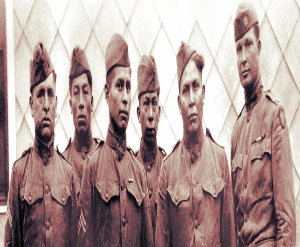
American Indians were not granted US citizenship until 1924. But about 13,000 of them fought in the Great War. On the other hand, an estimated number of 200,000 African Americans also served in the conflict. However, only 11% of this number was involved in combat and they did so in segregated units.
Uncommon WWI Facts #8: WWI and women independence
Because men were busy in the front lines of the Great War, women became the working force back home filling in the jobs that the men left. How they showed that they were capable of handling manly jobs as well as the men paved way for women’s independence.
In 1918, majority of British women aged 30 years and above were allowed to vote in the parliamentary elections. The United States followed suit two years later in the 19th Amendment of the US Constitution.
Uncommon WWI Facts #9: The rise…
The Great War transformed America into the world’s biggest military power. Moreover, when WWI ended, Poland, Lithuania, Finland, Latvia and Estonia became nations of their own.
But the greatest change WWI brought was the rise of the USSR, the first communist state the world saw. According to historians, this was the most surprising yet most vital change wrought from the Great War.
Uncommon WWI Facts #10: And the fall
The Allied Powers may have won WWI, technically, but their win came with huge consequences. Britain never recovered her lost place as the leader of the world’s economy. France, like the former, also suffered. There were massive debts to pay, ruins to deal with, the unemployment rate was high and economic growth was rather very slow.
Aside from that, the Great War saw the collapse of these four empires — the Austro-Hungarian, the German, the Ottoman and the Russian empires.
